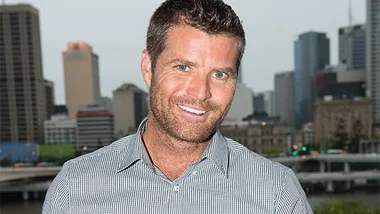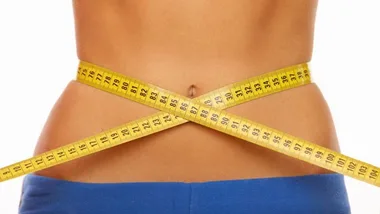A new cook book, due to hit our shelves in April, features grain-free, dairy-free and legume-free recipes for new mothers, toddlers and babies. According to health experts, putting your baby on the Paleo diet is taking things too far.
Co-authored by Paleo advocate and TV chef Pete Evans, it promotes cooking with lard, making DIY baby formula from chicken livers and bone broth, limiting fruit to an “occasional” food and removing fluoride from drinking water.
The Channel 7 My Kitchen Rules judge also controversially implies in his foreword that the diet may help prevent autism, birth defects, behavioural disorders, digestive disorders, rashes and asthma.
But health experts say parents should not put otherwise healthy babies or children on restrictive diets that eliminate entire food groups unless they have allergies or medically-diagnosed special dietary requirements.
“The only good thing about it would be that the child would not get any junk food,” independent nutritionist Rosemary Stanton tells aww.com.au. “But I really think not to let a child have any dairy or grain products is not a good idea. Without any proof that this is a safe way to eat, I think it’s particularly unwise to do it with children.”
Bubba Yum Yum: The Paleo Way for New Mums, Toddlers and Babies (published by Plum, a division of Pan Macmillan) is promoted as “a treasure trove of nutritional information and nourishing paleo recipes that are guaranteed to put you and your little one on the path to optimum health.”
As well as Pete Evans and naturopath Helen Padarin it’s co-authored by actress Charlotte Carr, whose two-year-old son Willow was born with sensory processing issues and a compromised gut and immune system, which led to him being prescribed a gluten-free and dairy-free diet.
“I think it’s going to be a book that appeals to all mothers because even though it’s Paleo, the focus is on the nutrition side of things,” says Charlotte, who is also a health coach and popular food blogger and is married to singer-songwriter and ex-Australian Idol winner Wes Carr. “It’s a very gentle diet, it’s simple and very seasonal.”
However, Dr Stanton points out it would be difficult for many small children to physically eat the quantity of vegetables required to meet their fibre requirements if they weren’t allowed wholegrains or legumes, as per a strict Paleo or “caveman” diet.
For most children, she says, dairy is a healthy source of calcium and vitamins.
Susie Burrell, Sydney-based paediatric dietician and founder of shapeme.com.au, says the Paleo diet is a belief system rather than an evidence-based healthy choice.
Small children should have a wide variety of foods in their diet, she says, as their bodies are developing and they have high energy and nutrient requirements.
“Specifically with kids, wholegrain are important because they are burning a lot of energy and they also provide fibre, essential fatty acids and B vitamins,” she said.
Legumes, which include lentils, beans, peas and some types of nuts, are “incredibly beneficial” to our health, says Dr Stanton. The “toxins” in legumes that Paleo followers object to are removed by the soaking and cooking process, she explains.
Charlotte Carr acknowledges the Paleo diet isn’t for everyone – “what’s good for me might not be good for everyone” – but says it’s improved her family’s health and she hopes her recipes will inspire others.
While Dr Stanton and Susie Burrell applauded the Paleo diet’s emphasis on whole foods and cutting of processed food, they pointed out there are plenty of ways to get the benefits of this without going to extremes.
“Often there’s some ignorance involved when you leave out any of the main food groups,” Dr Stanton says.
.jpg?fit=900%2C507)


